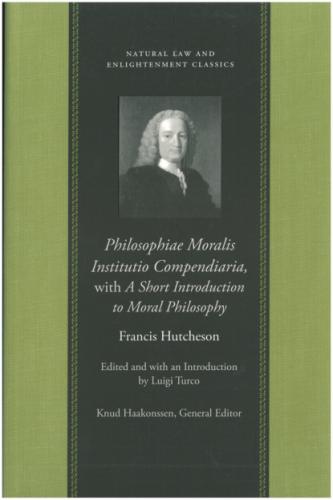1. The use of oaths and their nature. ib. 204.
2. The manner of demanding them and what obligation produced. 204, 205.
3. The various kinds of oaths. 206, 207.
4. Vows their nature and use. 207, 208.
Chapt. XII. Of the Values of Goods and of Coin. 209.
1. In commerce all things must be valued; the grounds of value. ib. 210.
2. Necessity for some standard. 211.
3. The design of coinage. ib.
4. Value of money not arbitrary. 212, 213.
Chapt. XIII. Of the several sorts of Contracts. 214.
1. Contracts beneficent or onerous. Mandatum. ib.
2. Loan for use or consumption. 215.
3. Depositing. 216.
4. The nature of onerous contracts. ib. Ground of merchants profit. 217. <xiv>
5. Barter, buying and selling, contracts of hazard. 217.
6. Hiring and setting to hire. 218.
7. Loans for consumption at interest. Interest how just. 219.
8. Contracts of insurance. Gaming and wagering how far lawful. 220, 221.
9. Bail, pledges and mortgages. 221, 222.
Chapt. XIV. Obligations like those from Contracts. 223.
1. Obligationes quasi ex contractu, of what nature; two classes of them: one from intermeddling with the goods of others. ib. 224.
2. Obligations to indemnify administrators, or such as sustain loss for our advantage. 224, 225.
3. The case of orphans maintained, and the children of slaves with other obligations of the second class. 225, &c.
Chapt. XV. Rights arising from damage done, and the Laws of War. 228.
1. Every one obliged to repair what damage he does. ib. Punishments for injuries necessary. ib. 229.
2. Damage what, and who are bound to repair it. 229, 230.
3. Damages by accident, by slaves, or by cattle. 230, 231. The obligation to forgive injuries. 231.
4. When force may be justly used. Different kinds of war. 231, 232. publick and private, solemn and not solemn. 232.
5. War may be lawful. 233. three points to be settled. ib.
6. Just causes in natural liberty. 234. and in civil society. 235.
7. The just time of commencing in liberty. ib. 236. and in civil life. 236.
8. The bounds of our claims in liberty. ib. and under government. 237. A right of punishing in natural liberty. 236. violent prosecution. 237.
9. Duels unlawful. 237, 238. The use of courts of honour. 239. One sort of duels just on one side. 239, 240.
Chapt. XVI. Extraordinary rights in cases of necessity. The common rights of mankind. 241.
1. Exceptions in cases of necessity. ib.
2. Such necessity must be manifest and very great. 242. Objections answered. 243.
3. Necessary cautions in applying this doctrine. 244, 245.
4. The common rights of mankind as a system. 246, 247.
Chapt. XVII. How rights and obligations cease. How controversies are decided in natural liberty, &c. 248.
1. Obligations are taken away three ways, by payment, remission, or defect of conditions, ib. 249. <xv>
2. The several ways of ending controversies. 249. who proper arbiters. 250. how they should proceed. ib.
3. General rules of interpretation. 251, 252.
4. The last result in controversies is force, hence the necessity of civil government. 253.
BOOK III. The Principles of Oeconomicks and Politicks.
Chapt. I. Concerning Marriage. 255
1. Reason for marriage among those of the human species. ib. 256, &c.
2. Chiefly from the duty of educating offspring. 256.
3. Plato’s scheme censurable. 257, 258.
4. Grounds of marriage-laws. Who bound to marry. 259.
5. Four chief articles. 1. Fidelity in women. 2. The like obligation on men. Polygamy unjust. 3. Joint aid in educating and providing for children. 4. The bond perpetual. 259, 260, 261.
6. Impediments, either nullities, or causes of divorce. some natural, some moral. 262. prior contracts. 263. and consanguinity. ib. 264.
7. The causes of divorce, various. 265, 266. the duties in marriage. 266.
Chapt. II. The Duties of Parents and Children. 267.
1. The grounds of parental power, and the extent of it. ib. 268.
2. ’Tis common to both parents. 268. Rights and obligations of parents. 269.
3. Parental power enlarged by civil laws. ib. 270.
4. Duties of adult children. 270, 271.
Chapt. III. Of Masters and Servants. 272.
1. The original of servitude, with necessary remarks. ib. 273.
2. The sole just causes of slavery. 273, 274. the Roman unjust. 274. captives should not be made slaves. ib. objections answered. 274, 275, &c.
3. Mutual duties. 278.
Chapt. IV. The Origin of Civil Government. 279.
1. The two motives to civil society under government, the fears of injuries and the natural approbations of virtue. 279, 280.
2. The stronger motive the fear of injuries. 280, 281. No other preservative sufficient. 281.
3. The first polities not from force. 282.
4. Polity better than any anarchy. 282, 283. the ends of polity. 283, 284. <xvi>
Chapt. V. The internal structure of States; and the parts of supreme Power. 285.
1. Civil power from consent and contract. ib.
2. How power and polity is constituted. 286. How posterity bound. ib. 287.
3. The nature of publick law. 288.
4. The several parts of supreme power; the legislative. ib. 289. the raising of tributes. 289. the executive. ib. the smaller rights. 290.
5. Who has the supreme power. ib. a system of states. ib. 291.
Chapt. VI. Of the various plans of Polity. 292.
1. The simple kinds. ib. The acts of a council what. ib.
